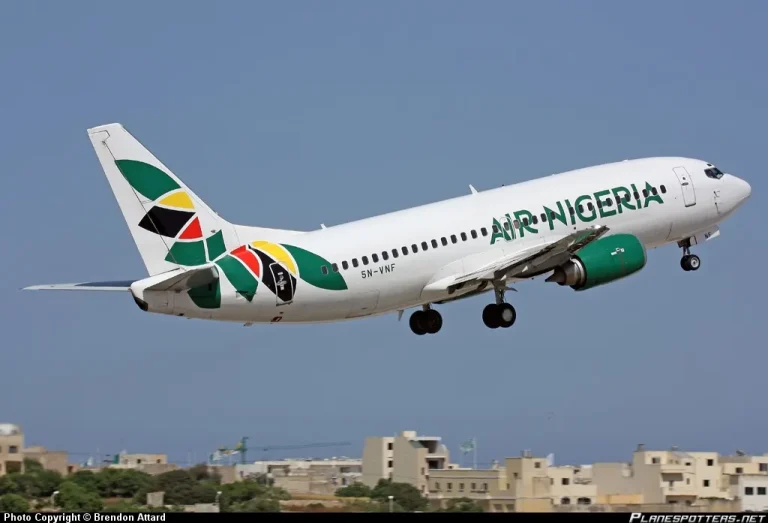The Federal Government has ended Value Added Tax (VAT) and duty exemptions for airlines. This means that from January 1, 2026, commercial aircraft engines, spare parts, and flight tickets will now attract taxes.
The announcement was made during a business webinar on Thursday, organized by Aviation & Allied Business in partnership with the Federal Inland Revenue Service (FIRS). The session was themed: “Nigeria Tax Act (2025) & The Aviation Industry: Aviation Sector Enlightenment Initiative.”
Nkechi Umegakwe, an Assistant Director at the Nigeria Revenue Service, explained that the new directive is backed by the Tax Reforms Act and will be fully enforced.
She said airline operators and aviation companies must now pay VAT on all services and operations. Until now, airlines were exempt from paying VAT and import duties on aircraft, engines, spare parts, and tickets. From January 2026, all these items will be taxable.
Umegakwe noted that VAT is clearly provided for in the Nigerian Tax Act and related laws. She added that the VAT (Modification) Order 2024 is still valid, but earlier VAT exemptions introduced in 2021 have been revoked.
She explained that the new reforms are designed to simplify and harmonies taxes, making the system more efficient. “VAT is a consumption tax borne by the end users, not the suppliers. Airlines must now pay VAT on aircraft, engines, and spare parts. However, if they overpay, refunds will be processed within 30 days,” she said.
She also highlighted new rules for VAT collection by agents who earn commission. Under the new law, intermediaries who help in transactions and earn commission can be appointed as VAT agents. They must issue invoices, give copies to buyers, and remit VAT.
For electronic platforms, the law now requires VAT to be collected on imported or online purchases made through non-resident suppliers. The tax will be paid at the point of clearance through appointed agents.
Nigeria first introduced VAT-free policy for aircraft parts in 2020. But after three months, Customs reinstated VAT and other charges, which airlines protested. By 2021, after the National Assembly’s intervention, the VAT-free policy was restored, and airlines praised the move.
Stakeholders ReactIndustry experts have expressed concern about the new law.
Capt. Samuel Caulcrik said airlines already face heavy taxes, and the new VAT will make things worse. He warned that adding 7.5% VAT to the existing 5% Ticket Sales Charge will drive away passengers and slow business growth.
Nkechi Onyenso, Managing Director of Pathfinder Securities, said the impact could be severe, especially for private aviation companies. She explained that ticket prices will rise, passenger numbers may drop further, and the weak naira makes aircraft parts even more expensive since they are paid for in dollars.
She said: “Tax reforms are good, but more engagement with industry players is needed. The aviation sector is already fragile, and this may push it into deeper trouble.”
Nigeria’s first aviation lawyer, Prof. Ismail Mustapha, warned that the new Tax Act contradicts the Civil Aviation Act 2022. He said that sections 22 and 23 of the Act exempt aviation income from taxation, and applying VAT could lead to double taxation. He called for urgent legal clarification.
The International Air Transport Association (IATA), represented by Dr. Samson Fatokun, also criticized the move. He said the policy goes against international treaties Nigeria has signed.
Fatokun reminded the government that in December 2024, ECOWAS countries signed an agreement banning taxes on air passengers and cargo from January 1, 2026. Nigeria also signed global treaties under the International Civil Aviation Organization (ICAO), which prohibit VAT on international air transport.
He stressed that aviation is a cost-recovery industry, not one for revenue generation, and warned that ignoring international agreements could damage Nigeria’s reputation.
Fatokun concluded that domestic tax laws must respect international treaties. He explained that aircraft and movable aviation assets should not be taxed while operating internationally. Applying Nigeria’s domestic tax laws to such assets would create serious complications.


